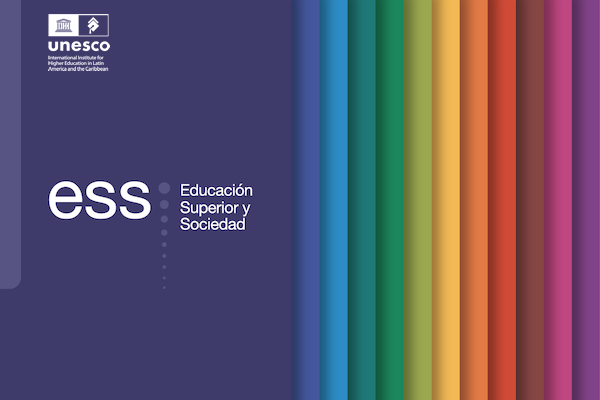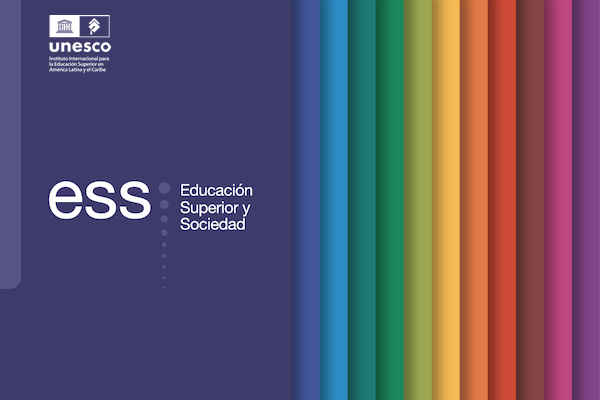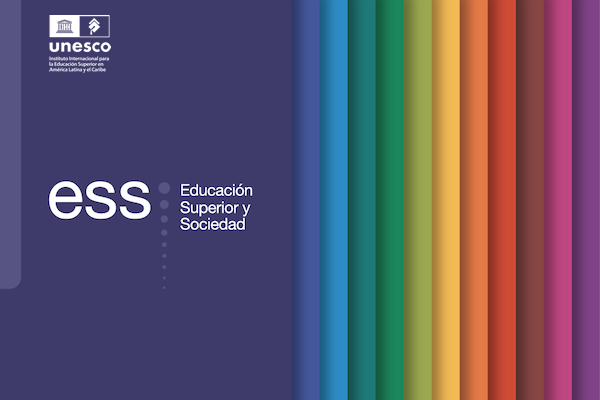IESALC’S ESS Journal addresses the challenges of higher education in the region facing the pandemic
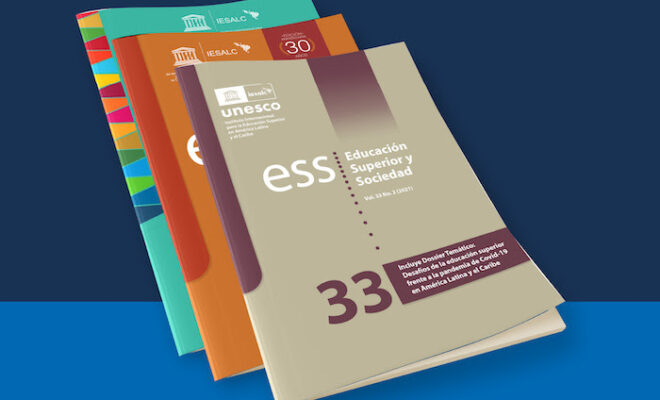
UNESCO IESALC’s Journal Educación Superior y Sociedad (ESS) presented its most recent edition (Vol.33, No. 2, 2021) which includes, in addition to its general content, a thematic dossier on the challenges of higher education in the face of the Covid-19 pandemic in Latin America and the Caribbean.
In the on-line presentation, its executive editor, UNESCO IESALC’s academic specialist, Débora Ramos pointed out that this volume, in which more than 90 teacher-researchers participated, is an important contribution to the debate on the pandemic and the future of the university and education
The director of UNESCO IESALC, Francesc Pedró, emphasized that Covid-19 implied, without obviously wishing it, a great test to see the real capacities of higher education systems and the possibilities that exist to rebuild them on a more solid and adequate basis for the 21st century.
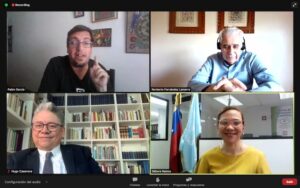
Photo: (from left to right / up down): Pablo Daniel García, Norberto Fernández Lamarra, Hugo Casanova Cardiel y Débora Ramos.
ESS journal has more than 30 years of solid prestige. Its general editor Norberto Fernández Lamarra, who is professor-researcher emeritus at the Universidad Nacional de Tres de Febrero (UNTREF) in Argentina, stressed that this fruitful edition -with more than 800 pages of academic papers- will enable progress and new innovative policies, which will contribute to the democratization and progress of higher education in the region. He also mentioned that the next issue, which will be published during the first semester of 2022, includes two thematic dossiers: one dedicated to the quality of higher education in Latin America and the Caribbean and the other on achieving a mutually inclusive internationalization of higher education in Latin America and the Caribbean.
The pandemic generated a scenario of great complexity. In the academic environment an “emergency remote higher education” emerged, explained Hugo Casanova Cardiel, guest editor and director of the University and Education Research Institute (IISUE) at the National Autonomous University of Mexico (UNAM) in Mexico. This has involved enormous challenges to replace face-to-face classrooms and effectively train young people. “Remote teaching was useful but not perfect. It is necessary to reinforce distance and remote systems in general, which must be strengthened. The same applies to face-to-face education, which has a long way to go”
Pablo Daniel García, professor-researcher at the Interdisciplinary Nucleus of Training and Studies for Development (NIFEDE) of UNTREF (Argentina), who was the other guest editor of the thematic dossier, reviewed the contents of the journal, which contains works from different countries: Argentina, Brazil, Cuba, Colombia, Mexico, Ecuador, Peru and Venezuela. “There are articles with a more regional perspective, others on particular countries, anothers on specific experiences. We tried to account for the different dimensions of our institutions impacted by the pandemic”.
He explained that the papers focus on different aspects that show the broad and complex panorama that the pandemic has entailed: technological innovation to provide answers; effects of the pandemic on the trajectory of students from different dimensions; academic management and concern for quality; internationalization of higher education and the construction of networks; the impact of virtualization on teaching tasks; the consequences for specific populations, such as native peoples, the disabled or those living in poverty; among others.
Finally, they informed that the call to participate in Vol. 34, No.2 corresponding to the second semester of 2022 is now open to contributions of articles that address the theme of Democratization and policies of inclusion of diversity in Higher Education in Latin America and the Caribbean.
RELATED ITEMS


